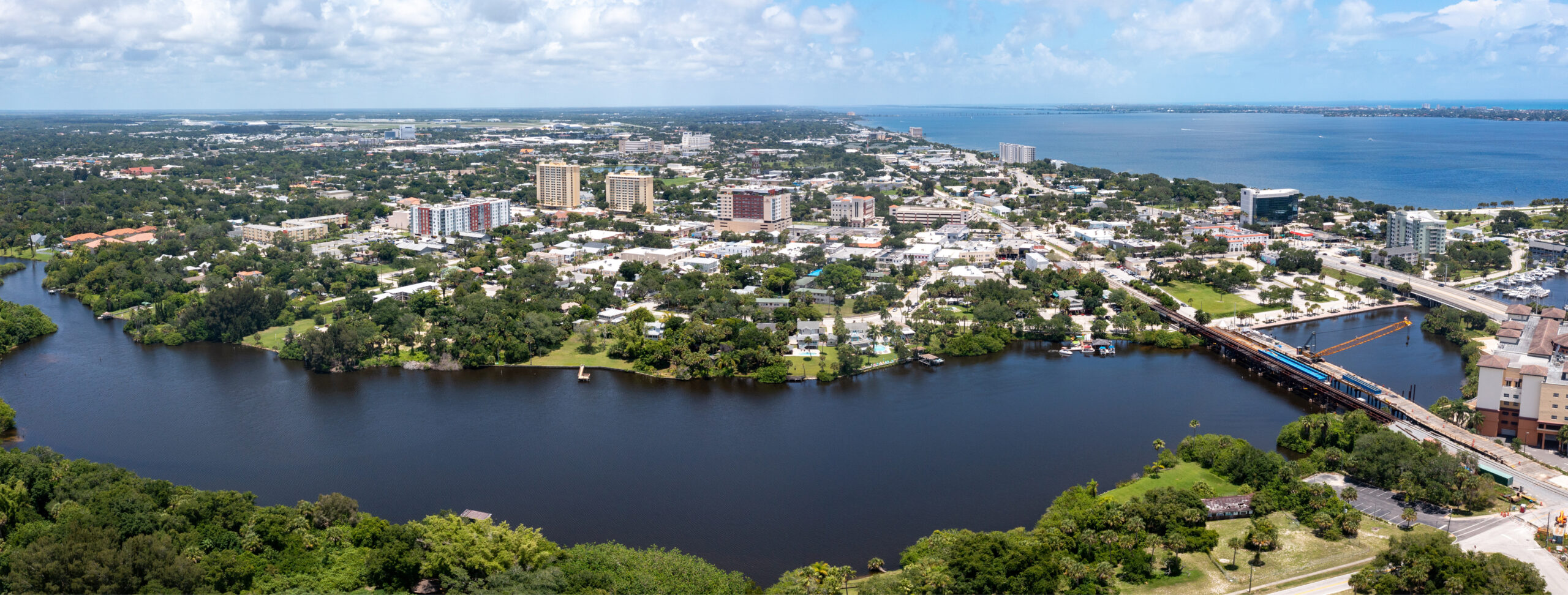Fleeing and eluding is one of the most serious traffic-related criminal offenses in Florida. Unlike ordinary moving violations, this charge involves the allegation that a driver intentionally refused to stop for law enforcement, attempted to escape, or created dangerous circumstances during a police encounter. Because these cases often involve high speeds or risky driving behavior, prosecutors aggressively pursue fleeing and eluding charges, and courts impose harsh penalties, including felony convictions, driver’s license revocation, vehicle impoundment, and lengthy prison sentences.
Even a third-degree fleeing and eluding charge is a felony that can never be sealed or expunged, making the stakes extremely high. If you have been accused of fleeing or attempting to evade law enforcement in Melbourne or anywhere in Brevard County, you must act quickly to protect your freedom and your driving privileges.
Melbourne Fleeing and Eluding Defense Lawyer
At Germain Legal, we represent individuals accused of fleeing and eluding, aggravated fleeing, and related felony traffic offenses. These cases often arise during moments of confusion, panic, or miscommunication, yet law enforcement may assume intentional evasion. Our firm thoroughly investigates the circumstances of each stop, including whether the officer’s lights and sirens were clearly visible, whether the order to stop was lawful, and whether the driver reasonably believed they were unsafe or unable to stop.
Because fleeing and eluding is a felony offense with mandatory penalties and long-term consequences, you need an attorney who understands how to challenge the state’s allegations, negotiate reductions, and present strong defenses in court.
Call Germain Legal today at (321) 775-3559 to discuss your case with an experienced criminal defense attorney.
Overview of Fleeing and Eluding Charges in Florida
- Florida’s Fleeing and Eluding Statute
- Penalties for Fleeing and Eluding in Florida
- Defenses to Fleeing and Eluding Charges
- Role of a Melbourne Criminal Defense Attorney
- Frequently Asked Questions
Florida’s Fleeing and Eluding Statute
Under Florida Statutes § 316.1935, it is a felony to operate a motor vehicle and knowingly fail to stop when ordered to do so by a law enforcement officer. To convict someone of basic fleeing and eluding, the state must prove:
- The individual was operating a motor vehicle
- A law enforcement officer issued a clear order to stop
- The driver knew or reasonably should have known the officer was legitimate
- The driver willfully refused to stop or drove away after stopping
This offense is classified as a third-degree felony.
Aggravated Fleeing and Eluding
A more serious form of the offense occurs when a driver:
- Flees or attempts to flee
- While the police officer’s lights and sirens are active
- At high speed or with reckless disregard for safety
This is a second-degree felony.
Aggravated Fleeing and Eluding with Serious Bodily Injury or Property Damage
The most severe category applies when a driver:
- Flees after a crash
- Knows an officer ordered them to stop
- Willfully refuses to stop
- Causes serious bodily injury or property damage during the flight
This is a first-degree felony, carrying a mandatory minimum prison sentence.
Penalties for Fleeing and Eluding in Florida
Penalties vary based on the degree of the offense:
Third-Degree Felony
- Up to 5 years in prison
- Up to $5,000 fine
- Mandatory driver’s license revocation (up to 1 year)
Second-Degree Felony
- Up to 15 years in prison
- Up to $5,000 fine
- License revocation
First-Degree Felony (with serious injury or property damage)
- Mandatory minimum of 3 years in prison
- Up to 30 years in state prison
- Restitution required
A conviction also results in a permanent felony record that cannot be sealed or expunged under Florida law.
Defenses to Fleeing and Eluding Charges
Lack of Knowledge of the Command to Stop: A key element of fleeing and eluding is that the driver must know they were being ordered to stop. Visibility issues, heavy traffic, loud road conditions, or unclear police signaling may prevent the driver from recognizing the officer’s command. If the driver lacked knowledge, the charges may be reduced or dismissed.
Officer Was in an Unmarked or Non-Identifiable Vehicle: Florida law requires officers in fleeing and eluding cases to be in vehicles with clearly visible agency markings and activated lights and sirens. If an officer was in an unmarked vehicle or used insufficient identification, the driver may not have realized a legitimate officer was giving the order. This defense can significantly weaken the state’s case.
Fear for Personal Safety: Some drivers fail to stop because they are afraid of isolated areas, late-night stops, or unknown pursuers. If the driver sought a well-lit or populated area before stopping, this may undermine the state’s argument of willful evasion. Courts often consider whether the driver ultimately stopped at a safer location.
Medical or Emergency Circumstances: A true emergency, such as transporting someone to a hospital or responding to a medical crisis, may justify why a driver did not immediately stop. These circumstances may not excuse fleeing entirely but can lead to reduced charges or mitigation at sentencing.
Mistaken Identity or No Intent to Flee: In chaotic traffic situations, a driver may unintentionally continue moving, especially if unsure whether they were the targeted vehicle. Intent must be proven beyond a reasonable doubt. Without clear evidence that the driver knew and willfully fled, the prosecution’s case may fail.
Unlawful Stop or Police Misconduct: If the initial traffic stop was unlawful or the officer acted improperly, evidence obtained afterward may be suppressed. This can significantly weaken the prosecution’s case or lead to dismissal.
Role of a Melbourne Criminal Defense Attorney
A defense attorney at Germain Legal plays a critical role in fleeing and eluding cases by:
- Examining dashcam and bodycam footage for visibility and clarity of police signaling
- Determining whether the officer was in a legally compliant patrol vehicle
- Challenging the driver’s alleged intent to flee
- Investigating any emergency or safety concerns that influenced the driver’s actions
- Negotiating with prosecutors to reduce felony charges to lesser offenses
- Preparing the case for trial if necessary
Because fleeing and eluding is prosecuted aggressively, having a strong legal advocate can significantly impact the outcome.
Frequently Asked Questions
Is fleeing and eluding always a felony?
Yes. Even the lowest-level offense under § 316.1935 is a third-degree felony.
Can I claim I didn’t see the officer?
Possibly. If the state cannot prove you knew or should have known you were being ordered to stop, the charge may be reduced or dismissed.
Can this charge be sealed or expunged?
No. Fleeing and eluding is not eligible for sealing or expungement under Florida law.
What if I stopped eventually?
The timing and circumstances of the stop matter. Stopping at a safe location can support defenses involving fear or confusion.
Lawyer for Fleeing and Eluding in Brevard County, FL
If you are accused of fleeing or attempting to elude law enforcement in Melbourne or anywhere along Florida’s Space Coast, contact Germain Legal immediately. Felony traffic charges carry life-changing consequences, and prosecutors take these cases extremely seriously. Our firm is committed to protecting your rights, challenging the state’s evidence, and pursuing the best possible outcome for your case.
Call (321) 775-3559 or submit an online form to begin building your defense. Germain Legal proudly serves clients throughout Melbourne, Palm Bay, Titusville, Rockledge, Merritt Island, Cocoa, Satellite Beach, and surrounding Central Florida communities.



